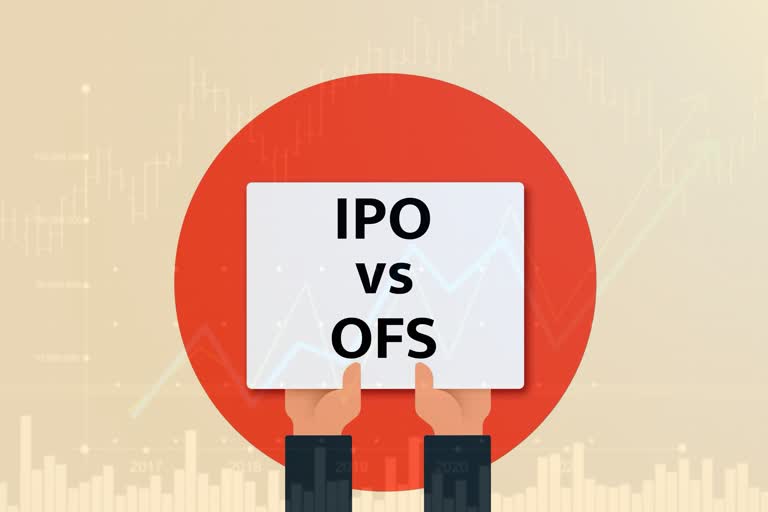Business Desk, ETV Bharat: As stock markets start recovering from the bloodbath seen on Dalal Street in March and April this year after the coronavirus outbreak shut down the economy, companies are now gaining confidence to initiate the public issues and offers that were put on hold due to the pandemic.
Sensing the return of positive sentiment on bourses, a slew of companies, both public and private, are now gearing up to launch their share sale offers in the coming months.
Last week, media reports said that two ‘Offers for Sale’ (OFS) to offload part of the central government’s stake in Hindustan Aeronautical Ltd (HAL) and Indian Railway Catering and Tourism Corp. Ltd (IRCTC) will hit the market soon. Meanwhile, on Monday, leading jewellery firm Kalyan Jewellers also filed its draft red herring prospectus with Securities and Exchange Board of India (Sebi) to raise about Rs 1,750 crore through an initial public offer (IPO).
For retail investors trying to make sense of how an IPO varies from an OFS, here’s a quick and simple guide explaining key differences between the two:
- In terms of purpose
IPO: In simplest terms, a company lists its shares on a stock exchange for the first time when it launches an IPO. Any unlisted company that wants to raise fresh capital to fund expansion or to reduce debt can opt to sell some of their shares to the public through an IPO. Listing of shares on exchanges also increases a company’s visibility.
OFS: The OFS mainly allows promoters to dilute their investment in a company transparently on exchanges. No fresh capital is raised and only a transfer of share ownership happens. Any non-promoter shareholder who owns more than 10% in a company can also sell stake through an OFS.
OFS is possible only if the company is already listed on stock exchanges. Moreover, it is allowed only for the top 200 companies in terms of market capitalization.
- In terms of regulatory procedure
IPO: To file for an IPO, a company needs to hire investment bankers, file a prospectus with SEBI, wait for approvals and then market the issue before it opens in order to garner investor interest. IPOs are usually open for subscription for 3-4 days. Then shares are allotted. The process is complex and can take up to months.
OFS: OFS is much quicker and simpler. The company needs to inform the exchange just two working days before the OFS needs to take place. And the OFS is itself completed in just one day. So there are high chances of retail investors missing an OFS due to lack of information.
- In terms of reserved portions for retail investors
IPO: Anybody who bids for shares worth up to Rs 2 lakh is called a retail investor. In IPOs, 35% of the shares issued are reserved for retail investors.
